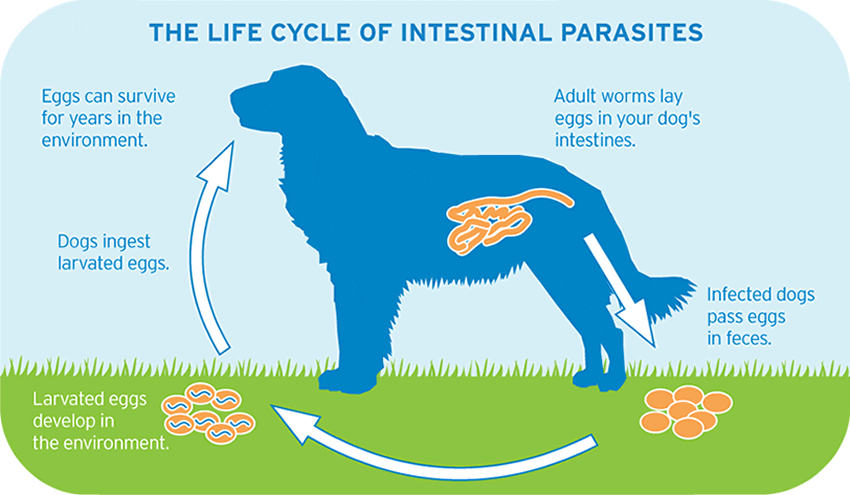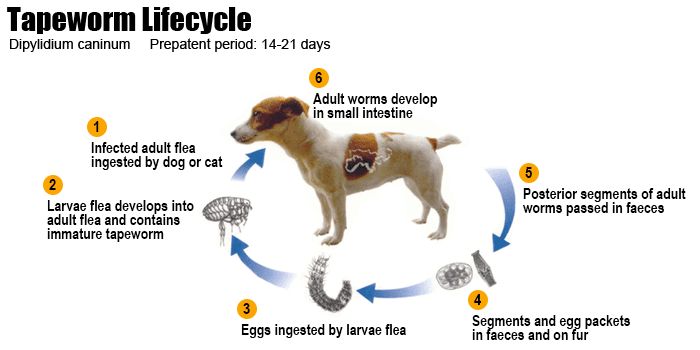Roundworms
Roundworms are the most common intestinal parasites found in pets. They are sometimes seen in the stool and look like spaghetti. Typical symptoms include a pot-bellied appearance, weight loss, and diarrhea. Young pets usually get roundworms from their mothers. Adult pets get the worms from eggs in the soil, feces, and infected wildlife. People (especially children) swallowing soil containing roundworm eggs may develop very serious diseases. Monthly heartworm pills are very important in controlling roundworms.

Hookworms
Hookworms can cause anemia, weakness, and bloody diarrhea. Infection occurs from swallowing contaminated soil or fecal matter, from immature hookworms burrowing into the skin, or from nursing from an infected mother. Human infection may occur when the larvae (a microscopic immature stage) in contaminated soil penetrate the skin, causing an extremely irritating rash. Hookworms cannot be seen in the feces. Monthly heartworm pills are very important in controlling hookworms.
Whipworms
Whipworm infections occur in dogs who swallow contaminated soil. Symptoms are weight loss and intermittent, often bloody, diarrhea. Whipworm eggs are remarkably hardy and can remain alive in the ground for years. Therefore it is doubly important to keep dogs that have been diagnosed with whipworms on an appropriate monthly heartworm/intestinal parasite preventative, so that they don’t continually become re-infected from eggs they have deposited in their yards. Whipworms cannot be seen in the stool, and are not transmissible to people.
Coccidia
Coccidia are single-celled parasites that live in the intestinal wall. Affected animals may have bloody diarrhea and weight loss. They do not always cause illness, but kittens and puppies are usually more severely affected. Monthly heartworm pills will not protect against coccidia, which are treated with another medication.
Giardia
Giardia are also single-celled parasites that dogs can get from the soil or the stool of another, infected dog. Like coccidia, they sometimes cause diarrhea but can often show no symptoms at all. Dogs who are asymptomatic for this parasite are often not treated, as treatment is sometimes unsuccessful and dogs can become re-infected. People and cats do not get giardia from dogs.
Tapeworms
Tapeworms are found in the small intestines of dogs and cats. Cats and dogs become infected when they eat fleas, rodents or rabbits carrying an immature form of the worm, and animals with fleas can have recurring infections. Tapeworms may pass out of the anus intermittently and can be seen by a pet owner. They look like grains of rice or white chains. Dogs and cats cannot directly pass tapeworms to each other. Monthly heartworm pills do not protect against tapeworms, so we treat them with another medication. People (usually children) can also get tapeworms by accidentally eating fleas.


